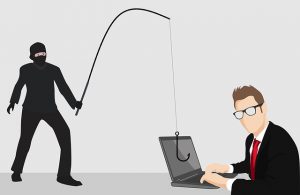I’ve written several articles about specific scams that are occurring on a regular basis on the Internet. They seem to subside for a short time – a very short time – and then a wave of them happens again.
One of the worst – as far as I am concerned – are the ones where the email recipient is being told they must verify their email. These have some common traits with most Internet scams:
1) A sense of urgency – they want you to take care of this immediately
2) A time limit – they give you within 24 hours to act
3) A threat – they tell you your email will be locked.
The first thing you have to understand is that nearly everyone gets these on occasion. I have received them myself in which they are made to look like they are from CharlesWorks. So when our clients get these they tend to become very worried very quickly.
I can’t stress enough that most legitimate companies will not send out messages like these. To fall prey to these can be a real nightmare. With access to one’s email these days the bad guys can wreak havoc in one’s life. The worst cases are called identity theft!
Don’t be the unfortunate one who falls prey to these scammers. If you have been “notified” of something serious – call your provider up and speak with a representative. Just like at my company – it’s a lot easier for us to allay your fears than to have to try to clean up the mess that can happen with compromised accounts.

